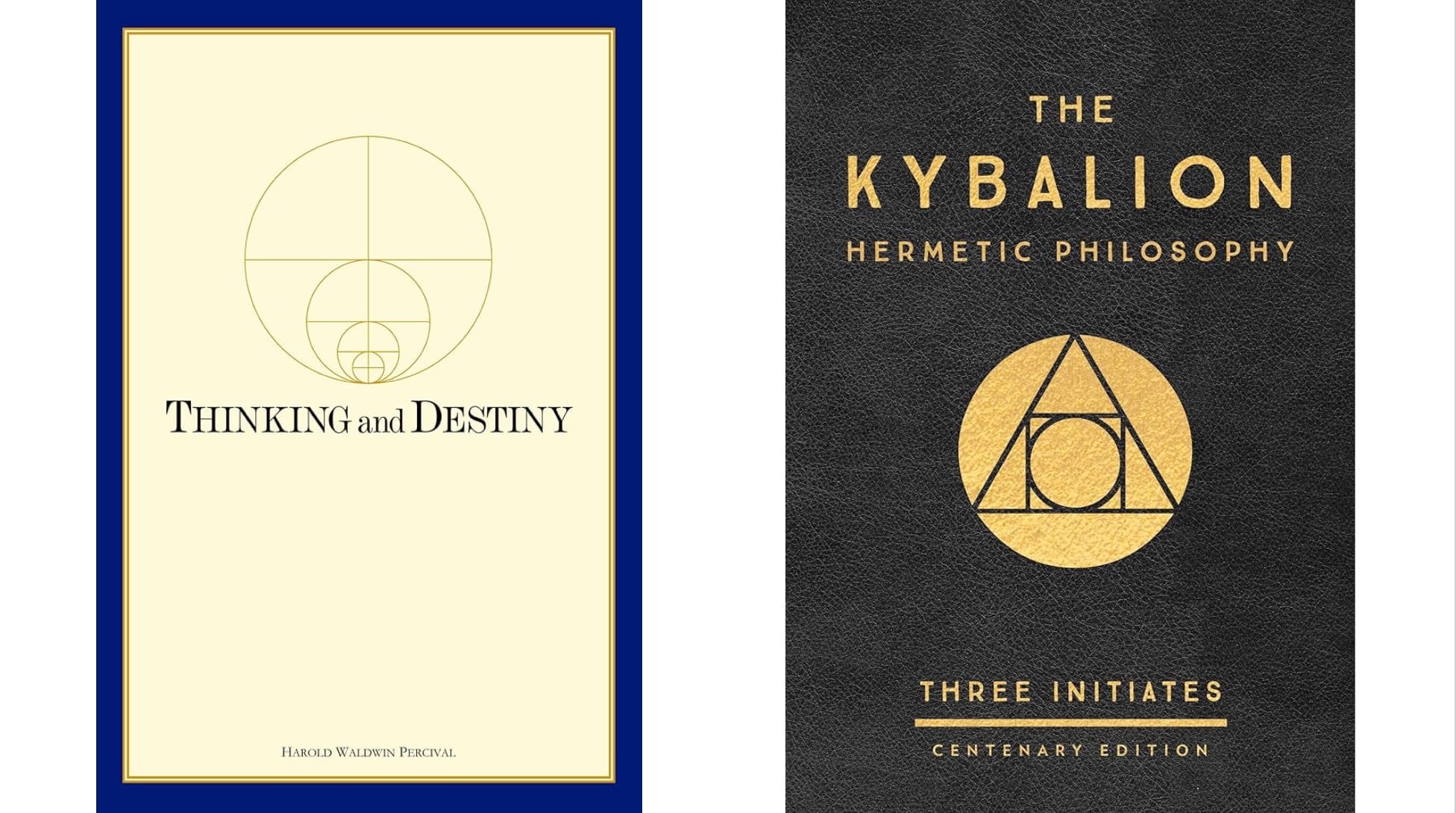Thinking and Destiny comparison with The Kybalion

Comparing "Thinking and Destiny" by Harold W. Percival with "The Kybalion" reveals some interesting similarities and differences. Both works are influential in esoteric and metaphysical circles, but they approach their subjects in distinct ways.
Similarities:
- Mental Universe: Both works emphasise the power of mind and thought in shaping reality. The Kybalion's principle of Mentalism aligns with Percival's idea that the physical world is a manifestation of thought.
- Cause and Effect: The Kybalion's principle of Cause and Effect is similar to Percival's ideas about karma and how thoughts and actions shape destiny.
- Spiritual Evolution: Both texts discuss the concept of human spiritual evolution and the development of consciousness.
- Hermetic influence: While more explicit in The Kybalion, both works show influence from Hermetic philosophy.
Differences:
- Scope and Complexity: "Thinking and Destiny" is much more extensive and complex, offering a detailed cosmology and metaphysical system. The Kybalion is more concise, focusing on seven core principles.
- Origin: The Kybalion claims to be based on ancient Hermetic teachings, while Percival's work is presented as his own system, though influenced by various traditions.
- Structure: The Kybalion is organized around its seven principles, while "Thinking and Destiny" has a more elaborate structure covering various aspects of Percival's philosophy.
- Concept of Self: Percival's idea of the Triune Self is unique to his work and not present in The Kybalion.
- Accessibility: The Kybalion is generally considered more accessible and easier to understand, while "Thinking and Destiny" is known for its complex language and ideas.
- Reincarnation: While both touch on spiritual evolution, Percival's work goes into much greater detail about reincarnation and its mechanics.
- Practical Application: The Kybalion tends to offer more straightforward practical advice, while Percival's work requires more interpretation to apply to daily life.